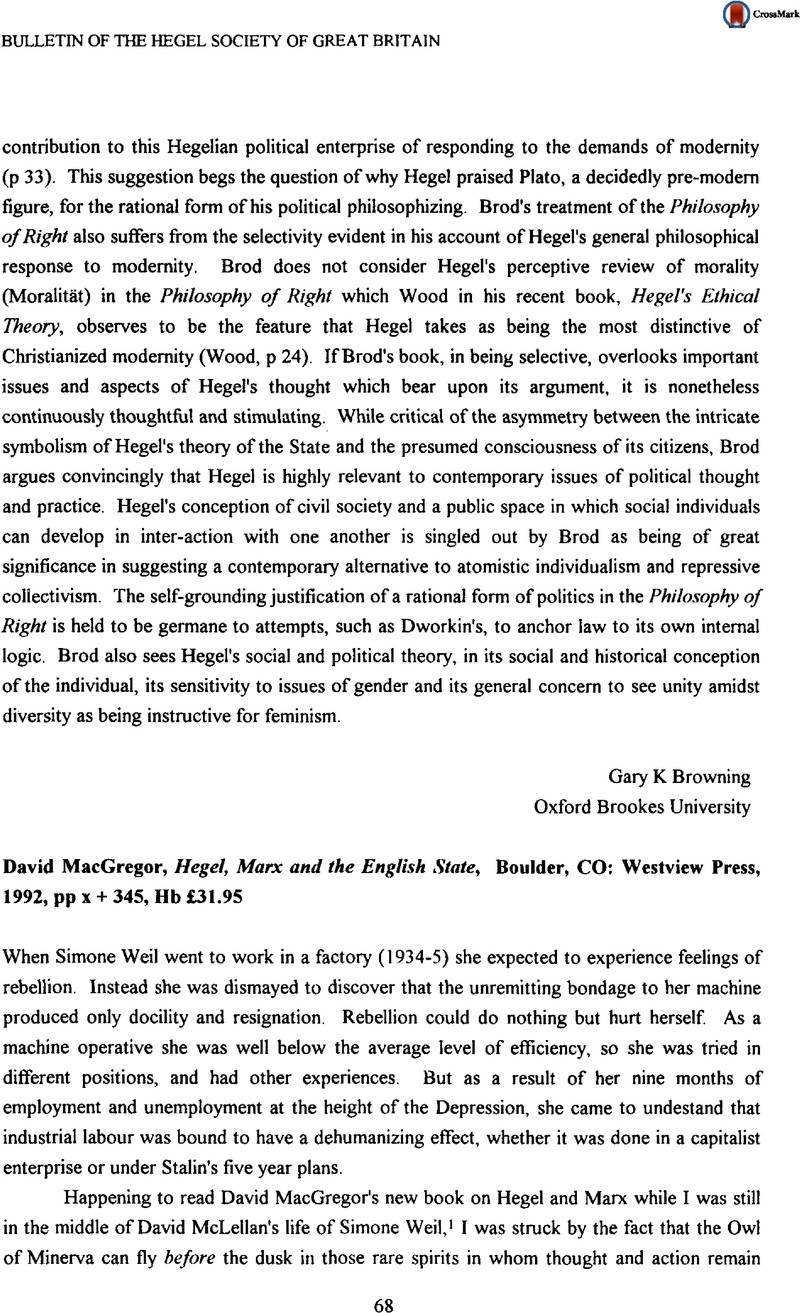No CrossRef data available.
Published online by Cambridge University Press: 23 June 2015

1 Utopian Pessimist, New York, Poseidon Press, 1990 Google Scholar.
2 The Communist Ideal in Hegel and Marx, Toronto, University of Toronto Press, 1984 Google Scholar.
3 See now “The Social Ideal of Hegel's Economic Theory” in Lamb, D and Stepelevich, L S, eds, Hegel's Philosophy of Action, Atlantic Highlands NJ, Humanities, 1983 Google Scholar.
4 We have to eliminate the Hobbesian doctrine of war as the “judgement of God”, because it is logically inappropriate to our world-community. This necessitates a great recasting of Hegelian ethics on its “absolute” side.
5 In spite of the verdict of the coroner's jury, it is questionable whether Simone Weil's death should be called suicide; and her metaphysical despair (the belief that “progress” is a dangerous dialectical illusion) did not affect the direction of her political thought toward social improvement. I am here “recollecting” her philosophical position in the perspective of the Phenomenology. She is a perfect paradigm case of the “Beautiful Soul” whose heart has “broken”; but she was unable to make the transition to the religious community in its Hegelian sense because of her Platonic-mathematical conception of the “eternity” of Reason. The “contradiction” that results is clearly visible in her agonized torment about baptism and the Eucharist.